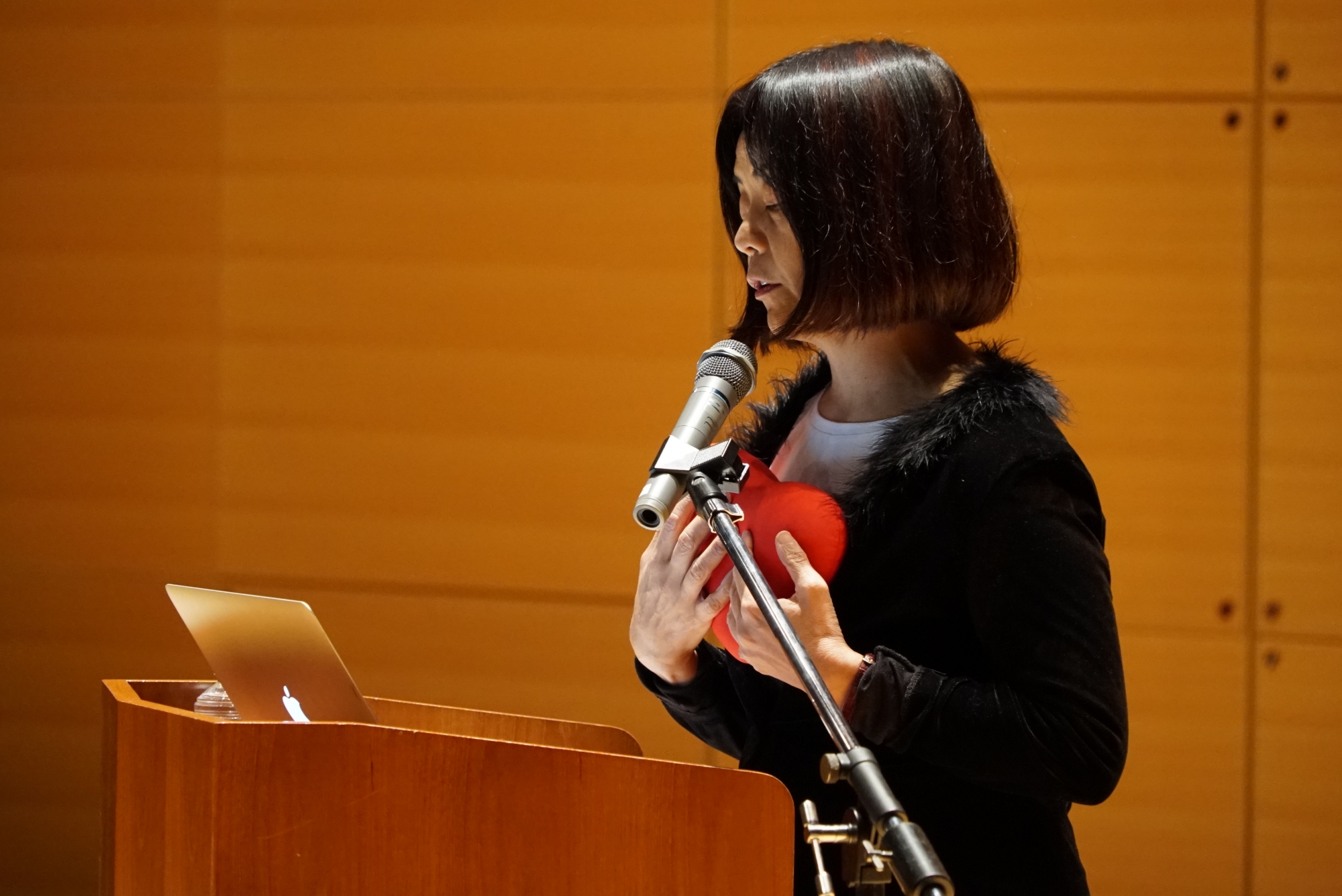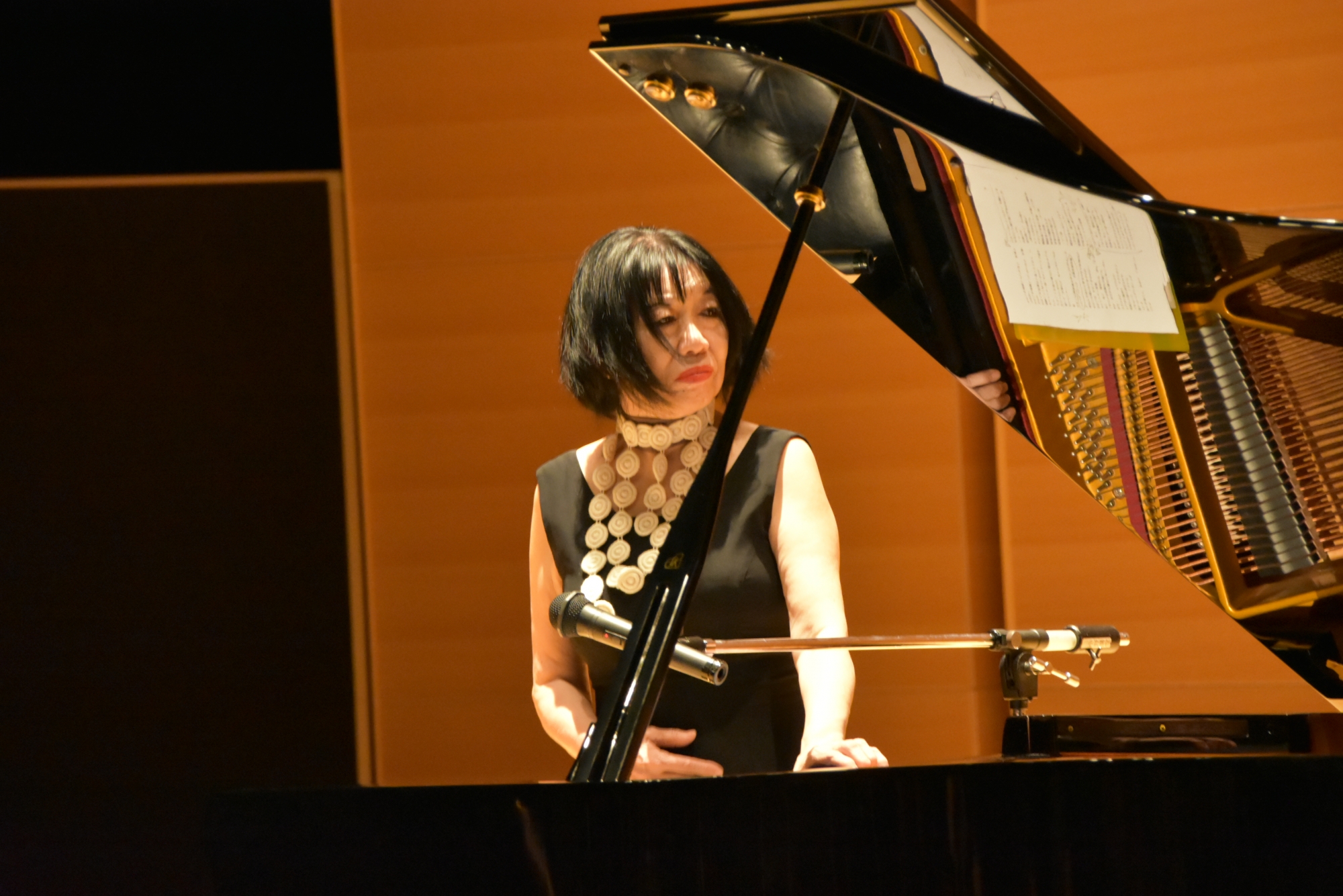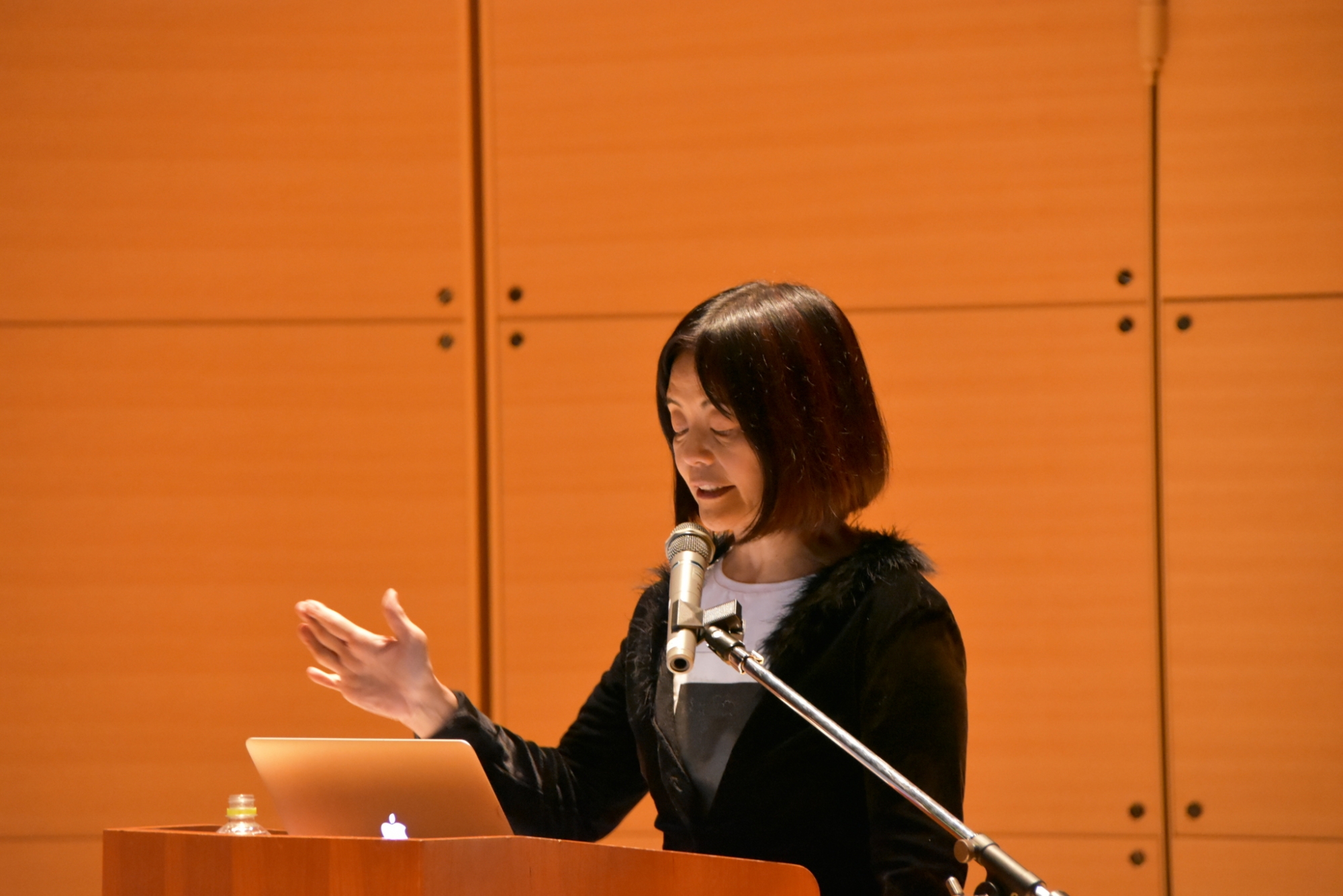Performance of “Clockwork Hamlet” by Award-winning Author Yoko Tawada and Pianist Aki Takase
Mon, Dec 2, 2019-
Tags
On November 14, award-winning author Yoko Tawada and pianist Aki Takase collaborated and gave performance of “Clockwork Hamlet” at Ono Auditorium. They gave a recitation accompanied by piano music at Waseda annually in November and this year was the memorable 10th performance.
- Pianist Aki Takase
- Author Yoko Tawada
Yoko Tawada is a graduate of the School of Humanities and Social Sciences at Waseda University. Her works were published both in Japanese and German and awarded many literary prizes, such as the Akutagawa Award and the Tsubouchi Shoyo Award in Japan, and the Kleist Prize in Germany.
Aki Takase is a pianist who performs internationally especially in the US and Germany. She is famous for playing jazz and improvising music, and was awarded the Jazzpreis Berlin in 2018.
This year, Ms. Tawada chose Die Hamletmaschine which deconstructed Shakespeare’s Hamlet and written by Heiner Müller as a program. She deconstructed Die Hamletmaschine and wrote the original work Clockwork Hamlet for the performance. Her recitation of this text and Ms. Takase’s improvised piano music matched and created a special mood.
Performance
The performance started with the sudden appearance of Yoko Tawada and Aki Takase from the audience seat. The recitation consisted of five chapters and mainly based on Hamletmachine. She played with words and used many onomatopoeia and homonym effectively. For example, the word “kokusou” have different meanings by use of different kanji: national funeral and granary.
In chapter two, she covered up herself with white sheets to play Ophelia, the wife of Hamlet. Since the performance is mainly reading text, her unexpected move deeply struck the audience.

One powerful passage she said was “the statue of the air cannot be knocked down.” When Hamletmachine was written, Germany was still divided and the statues showed off the leader’s power, but these days, statues are not built anymore. Instead, there is the statue of the air in the society and control people’s mind. This statue of the atmosphere cannot be seen and is now stronger than what it used to be. In Japan, social media became important for people and they are easily influenced by the atmosphere created by it without realizing it. I guess she wanted to express this situation sarcastically by using funny onomatopoeia.
At the end, the special guest, opera singer Mayumi Nakamura suddenly stood up from her seat and sang the interlude from the opera Carmen. Her passionate singing impressed the audience and the performance ended dramatically.
Talks after the performance
After the performance, there were talks by Ms. Tawada, Ms. Takase, and Professor Miho Matsunaga who specializes in German literature. Ms. Tawada talked a lot about her experiences and memories of Heiner Müller.

When she was a master student, she wrote a dissertation about the similarities between Heiner Müller’s works and Japanese Noh play, and gave a presentation on it. Her friend invited Heiner Müller to the presentation, and they met for the first time. She mentioned that Heiner Müller was a feminist because of the death of his first wife though he had a relationship with many women, and that is why Ophelia in Hamletmachine is powerful.
In the scene that Ophelia strongly claimed “Now, I decide not to kill myself!”, Ms. Tawada covered herself with white sheets. Professor Matsunaga asks Ms. Tawada why she did that. She answered that women covering herself with a veil tend to be seen as weak because of religious reasons, while showing off their body is seen as strong in western countries. However, women wearing bikini are consumed by men not only in western countries but also Japan. She wanted to express this contradiction by using the white sheets.
Also, Ms. Takase said that almost all music she played for the event was improvisation and she enjoyed doing so. She commented that although she received the text from Ms. Tawada earlier, there is a difference between simply reading the text by herself and listening to Tawada reading it with overwhelming vigor.
Q&A Session
At the beginning of Q & A session, the comment on the performance and history of Hamletmachine was made by Professor Michiko Tanigawa who is a specialist in German literature and translator of Hamletmachine.
One of the audiences asked her about the Nobel Prize, because many Japanese expected her to win. However, she responded “Most media in Japan are only interested in whether Japanese nationals win or not. They should pay more attention to who won the prize and report the details and translation of their book. Generally speaking, the person winning the Nobel Prize should be unpopular unlike Mr. Murakami, since the purpose is to make their works more famous and let more people read their books.
Her answer reminds us the importance of the literary prize and her passion for the literature can be known. People in Waseda tend to wish Ms. Tawada or Mr. Murakami to be awarded, we might need to change our attitude.
The performance for next year is scheduled on November, so don’t miss out.
*This article was written and contributed by the following student.
Student Contributor
Minami Nakanishi (4th Year Student)
School of International Liberal Studies
















